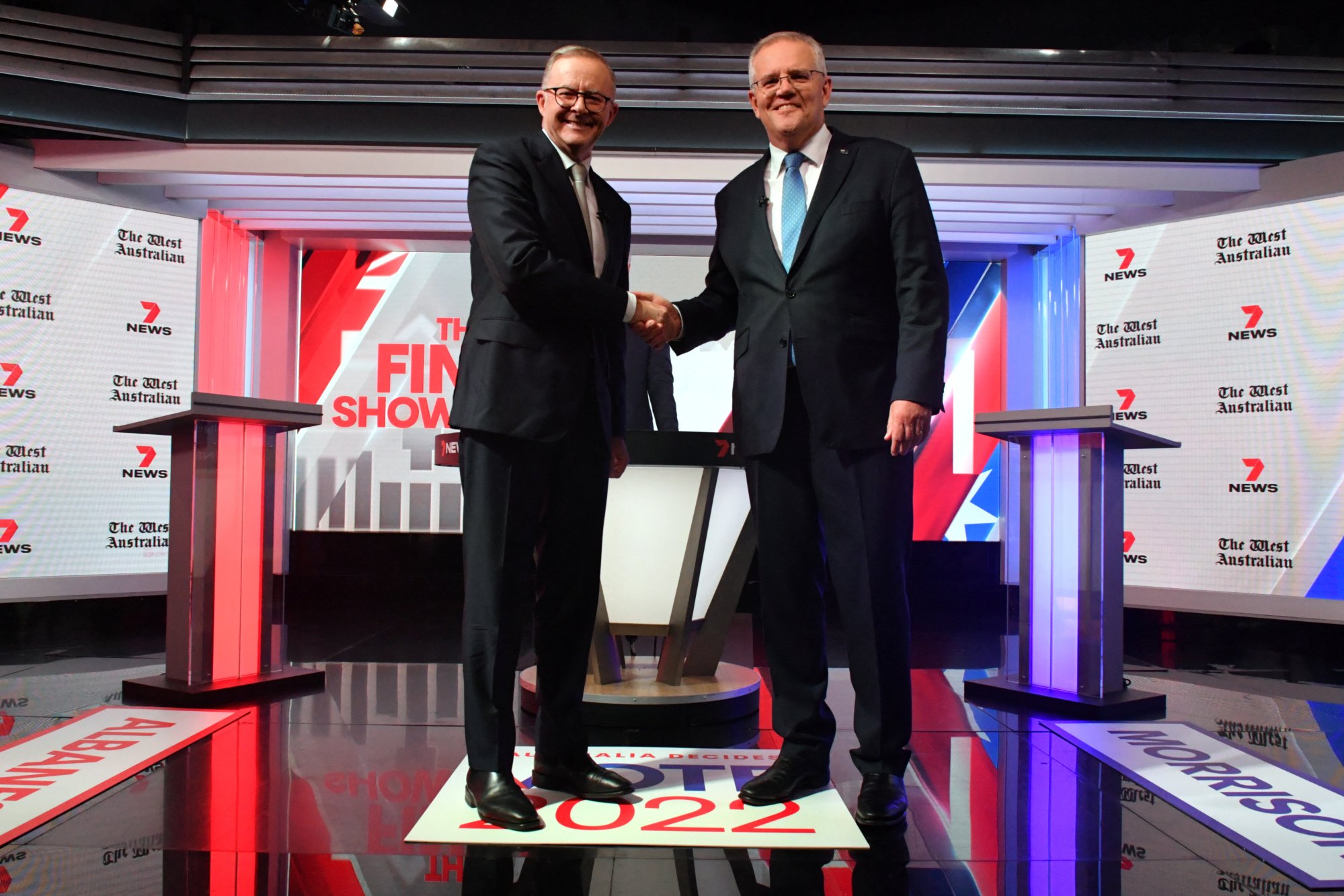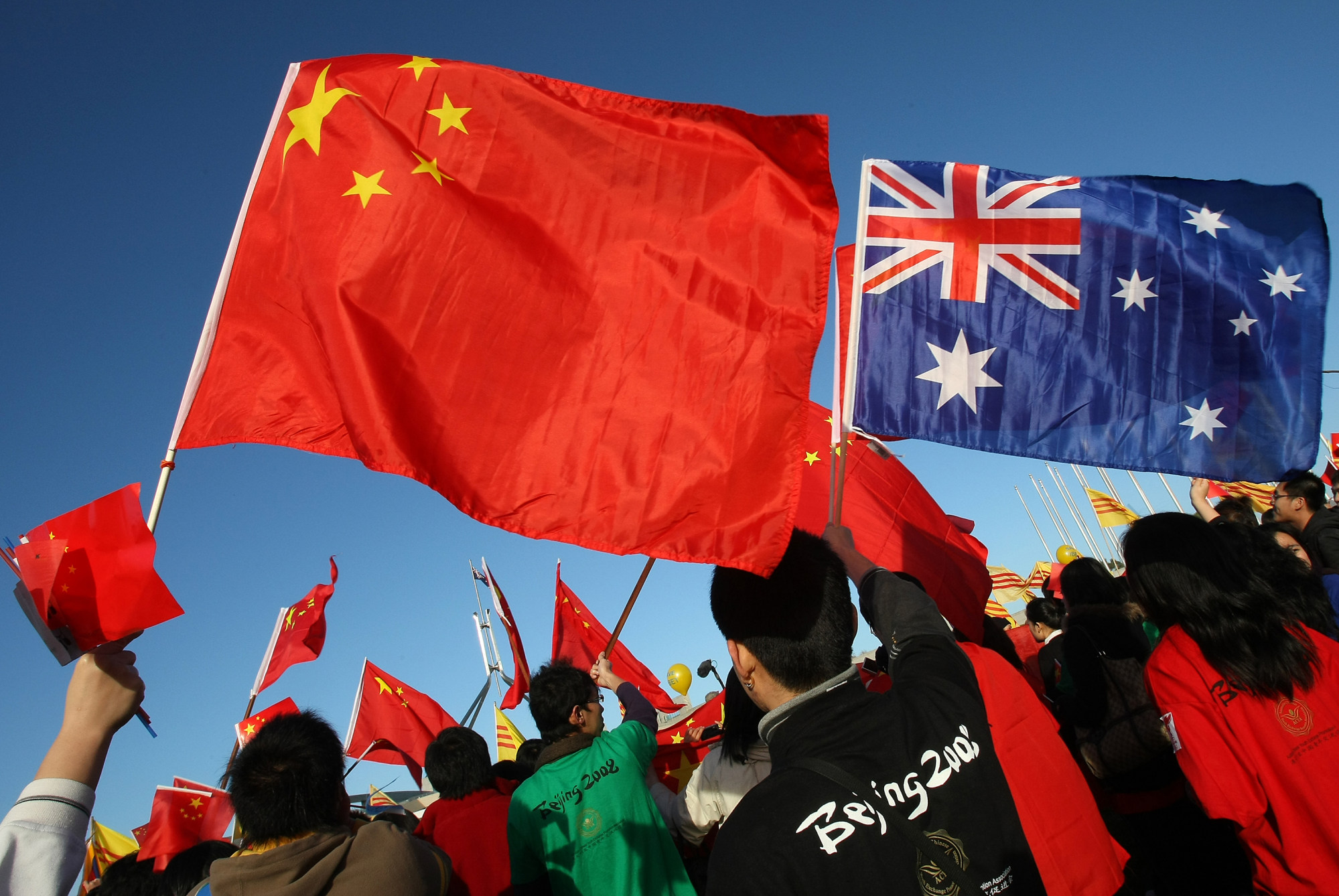
Explainer | Australia election: who’s leading, is Morrison or Albanese tougher on China, why has the PM been called a ‘bully’?
- Opinion polls suggest Anthony Albanese’s centre-left Labor party is ahead of PM Scott Morrison’s incumbent conservative coalition, but they’ve been wrong before
- Morrison has attacked Albanese for having no experience, and been called a ‘liar’ and a ‘bully’. On foreign policy, both talk tough on China amid tensions
Australians will soon be heading to the polls and enjoying the tradition of sausage sizzles on May 21.
The conservative Liberal-National coalition has been in power since 2013 and is seeking another three-year term. The opposition Labor Party, minor parties and independent candidates have all been giving the government a run for its money.
All 151 lower house or House of Representatives seats will be up for grabs. The party or coalition holding a majority in the lower house will form a government.
Voting is compulsory for about 17 million Australians, who must register when they turn 18. Those who do not vote face a fine of A$20 (US$15).
Here we take a look at some of the issues that have surfaced in the lead up to the election.

Who’s leading the race?
This week, Australian opinion poll Newspoll found that, of the two major political parties, the centre-left Labor party was leading the conservative government by 54-46 per cent, roughly the same as when the election was called a month ago.
In an Ipsos poll, Labor leads the government 57-43 per cent, compared to 55-45 per cent about a month ago.
Labor remains in pole position, if polls are to be taken seriously. Surveys before the 2019 election showed the Morrison government lagging behind before pulling off a win.
Morrison’s administration has played up economic uncertainties and security threats, saying this is not the time to hand the reins to someone untested like opposition Labor leader Anthony Albanese.
Prime Minister Scott Morrison has characterised the Labor party as “a risk” to Australia’s economy using the catchphrase: “Labor can’t be trusted to manage money.”

Why have voters grown to distrust Morrison and the government?
Integrity is a sore point for Morrison.
Morrison was also criticised for delaying the roll-out of Covid-19 vaccines and the shortage of rapid antigen tests during a recent Omicron outbreak.
China-Australia tensions, racism fuelling Asian ‘reluctance’ to join politics
He faced criticism for his slow actions on climate change during the COP26 meeting last year.

Why will Morrison struggle to win over women voters?
Around the same time, then-Australian Attorney General Christian Porter denied he raped a 16-year-old girl in 1988. Porter resigned from the front bench in September last year.
What does the public think about opposition leader Anthony Albanese and Labor?
Albanese has won two of the public debates with Morrison. In the second leaders’ debate, many voters said publicly Albanese was more genuine, more supportive of the working class and had a slightly better climate change policy than Morrison.
His image as an Aussie battler raised by a single mother in public housing seems to be winning Australians over.
But Albanese remains a little behind Morrison as preferred prime minister. In Australia, however, voters only choose the ruling party, not the country’s leader.
Albanese had some tough moments during his election campaign, including not being able to cite the national unemployment figure or the “official cash rate” when asked but he landed some popular policy punches promising to fix the aged care crisis.
He also committed to legislate a national anti-corruption commission by the end of 2022 if elected, showing up Morrison on a promise he never delivered upon, and agreed to back a rise in the minimum wage to keep up with increasing inflation.
Australia PM ally draws flak after thanking Chinese-Australians for ‘putting up’ with racism
His party has, however, been roiled by controversies for parachuting in “star” candidates into seats that have major ethnic and migrant populations, triggering accusations of structural racism.
Labor picked a former economics adviser to Kevin Rudd, Andrew Charlton, who lives in the eye-poppingly expensive suburb of Bellevue Hill, for the working-class seat of Parramatta in Sydney’s west.
The party angered the Vietnamese-Australian community after selecting former NSW premier Kristina Keneally, who had lived on the exclusive Scotland Island in Sydney, to run for the seat of Fowler, displacing local candidate, Vietnamese-Australian Tu Le.

How does China – and race – feature in this election?
Several parliamentarians have started stoking voter fears over the possibility of war with China. But pollsters say there is no evidence voters are swayed by the national security narrative.
Both parties have been seen to be equally tough on China.
Reports have also surfaced that Morrison embarked on racial vilification campaign against a Lebanese-Australian rival Michael Towke in 2007, telling voters it would be risky to vote him in because he was Muslim.

